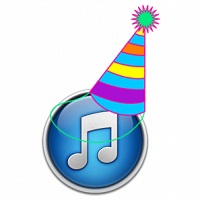Apple’s iTunes launched back in spring 2003, going on to become the most successful online music store of the past decade. But can it maintain its lead amid growing competition from the likes of Amazon, Google and Spotify?

iTunes launched amid the ashes of Napster, with the music industry still reeling the effects of online piracy.
Today, iTunes has become music’s biggest retailer and also dominates the digital video market, capturing 67 percent of the TV show sale market and 65 percent of the movie sale market, according to information company NPD group.
Its apps are the most profitable, it has expanded to books and magazines, and it is now available in 119 countries. This week, iTunes posted a record $2.4 billion in revenue in first-quarter earnings.
Timeline marks 10 years of digital media evolution
Apple says a multimedia timeline posted to the music section of iTunes is a celebration of the 10th anniversary of the digital music store.
“A Decade of iTunes” timeline is online now in the music section of the store, the Los Angeles Times reported Thursday.

You can access the iTunes timeline here (registration required)
The multimedia timeline features notable iPod releases, the top-selling songs and albums from each year of the iTunes’ existence, and other bits of information, such as noting Feb. 23, 2006, as the date when iTunes sold its 1 billionth song.
The timeline also highlights the addition of The Beatles collection in November 2010, the release of a Special Edition U2 iPod in black and red in October 2004 and the launch of the App Store with 500 apps during summer 2008.
The iTunes Store was introduced 2003 because Apple felt consumers were looking for an easy and legal way to download songs from the Internet, Eddy Cue, the executive in charge of overseeing iTunes, said.
“Apple was floored, as were the labels, when customers bought over 1 million songs during the first week,” he said. “And now, 10 years later, we continue to be amazed by how much customers love the iTunes Store with more than 25 billion songs sold.”
Challenges ahead
But as iTunes celebrated its 10-year mark Sunday, it faces renewed scrutiny on how it will continue to dominate in the next decade – or whether it can.
With competition from subscription services like Spotify and other services like Amazon.com, Netflix, Hulu and others, iTunes will likely need to reinvent itself to remain at the top of the digital entertainment perch.
John Oswald, Business Design Lead, at leading service design consultancy, Fjord, discusses what iTunes will need to do to in the future to stay ahead of the competition.
“iTunes legitimised digital music in an era where MP3s were synonymous with piracy. Apple’s service is a revolutionary model that has provided a way to own music that is portable and instantaneous and consequently iTunes has completely changed the way we discover, buy and consume media at large. Ten years on, individuals are increasingly consuming media across the web and Apple’s latest results highlight its competitive challenges.
“iTunes will need to continue to innovate to keep up with technology and today’s hyper connected consumers. Spotify has proven that consumers are willing to pay to rent music if they feel they’re getting a valuable service and this is a totally different model to the traditional distribution business which iTunes is more closely aligned with.
“We expect to see the life span of digital media shorten as, in the future, individuals will not feel the need to own digital content; being able to simply access it will be just as valuable. The rise of subscription and streaming services has spawned the beginnings of a ‘pay as you go’ mentality among content consumers and we expect that services like iTunes will need to develop more innovative business models to compete, for example revenue based on usage. Ten years ago Apple knew what consumers wanted, before they wanted it – but perhaps it’s the consumers who will dictate what comes next.”
